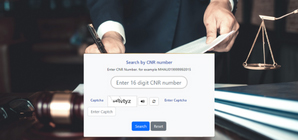 What is Bail
What is Bail
2 years ago
What is a bail? What is anticipatory bail?
How do I get a bail? How much I have to pay for a bail? Is that amount refundable?
Can I take bail in advance if I know somebody is going to take a legal action against me (I did not do anything wrong)?
How long a bail is valid? Does it have some expiry?

Lucem Leg
Responded 2 years ago
Anticipatory Bail :
Under Section 438 CRPC, if any person has reason to believe that he/she may be arrested for any non-bailable offence, he/she may apply to Sessions court or High court for anticipatory bail praying that in the event of arrest, he/she shall be released on bail. The amount of security is decided by the court itself as it is a discretion of the court. No one except the court before which the bail is pending has power to decide the amount of security to be paid. No, the amount is not refundable till the finality of the case. If the person who is accused of the offence gets acquitted, can file the application to get that security amount.
Yes, you can apply for anticipatory bail if you have got any idea that other person is going to take legal action against you.
Till the pendency of the case, the bail stands valid.
Please rate us, if you find our response useful.

Ayantika Mondal @ Prime Legal
Responded 2 years ago
CHAPTER XXXIII (S.436-450) of the Code of Criminal procedure deals with bails and bonds
Section 436(1) of Cr.P.C. lays down the conditions under which bail can be granted for bailable offences committed under the Indian Penal Code (1862). Whenever a person is arrested or detained by police for any non-bailable offence is produced before the court and he is prepared to give bail, he may be released on bail.
There should be an element of apprehension, i.e. the person seeking bail feels that he will be framed or arrested in a false case or someone having enmity with him will try to get him arrested on the pretext on a fabricated charge. The applicant has to present before the Court certain special facts or circumstances which makes him believe would result in his arrest. This is however left to the satisfaction of the court, whether such facts would be considered good enough for granting bail.
Anticipatory bail can be granted only a High Court or a Court of Sessions.
if you find this response useful then please rate me
Section 436(1) of Cr.P.C. lays down the conditions under which bail can be granted for bailable offences committed under the Indian Penal Code (1862). Whenever a person is arrested or detained by police for any non-bailable offence is produced before the court and he is prepared to give bail, he may be released on bail.
Section 438 of the CrPC lays down the procedures for getting bail in anticipation of arrest for a non-bailable offence. There should be an element of apprehension, i.e. the person seeking bail feels that he will be framed or arrested in a false case or someone having enmity with him will try to get him arrested on the pretext of a fabricated charge. The applicant has to present before the Court certain special facts or circumstances which makes him believe would result in his arrest. This is however left to the satisfaction of the court, whether such facts would be considered good enough for granting bail.
Anticipatory bail can be granted only by a High Court or a Court of Sessions.
if you find this response useful then please rate me
A.Dear Sir,
Siddharam Satlingappa Mhetre vs State Of Maharashtra And Ors. - 2 December, 2010
The Honourable Supreme Court of India beautifully highlights the law regarding bails as follows “….The law of bails dovetails two conflicting interests namely, on the one hand, the requirements of shielding the society from the hazards of those committing crimes and potentiality of repeating the same crime while on bail and on the other hand absolute adherence of the fundamental principle of criminal jurisprudence regarding presumption of innocence of an accused until he is found guilty and the sanctity of individual liberty…”
I see this judgement being regularly used by other courts granting bail. This is becoming a “Mother of all judgements”, on anticipatory bail. In this case the liberty of the individual is balanced against the interests of the state, public safety etc and BAIL GRANTED to the accused
Gurbaksh Singh Sibbia Etc vs State Of Punjab on 9 April, 1980
Cornerstone case on Anticipatory Bails. Supreme court of India
This very detailed judgement almost lays down the law on Anticipatory bails and is affirmatively quoted in many bail orders that follow.
This judgement decides the following key issues
1. The society has a vital stake in both of these interests namely, personal liberty and the investigational power of the police, ... The Court's task is how best to balance these interests ...
2. The High Court and the Court of Session should be left to exercise their jurisdiction under section 438 by a wise and careful use of their discretion which by their long training and experience, they are ideally suited to do. ....
3. The applicant must show that he has "reason to believe" that he may be arrested for a non-bailable offence. The use of the expression "reason to believe" shows that the belief that the applicant may be so arrested must be founded on reasonable grounds.
The Hon court has also enunciated these Key principles about an Anticipatory bail. Namely :
- Anticipatory bail is a device to secure the individual's liberty; it is neither a passport to the commission of crimes nor a shield against any and all kinds of accusation, likely or unlikely.
- Secondly, if an application for anticipatory bail is made to the High Court or the Court of Session it must apply its own mind to the question and decide whether a case has been made out for granting such relief. It cannot leave the question for the decision of the Magistrate concerned under Section 437 of the Code, as and when an occasion arises. Such a course will defeat the very object of Section 438.
- Thirdly, the filing of a First Information Report is not a condition precedent to the exercise of the power under Section 438. The imminence of a likely arrest founded on a reasonable belief can be shown to exist even if an F.I.R. is not yet filed.
- Fourthly, anticipatory bail can be granted even after an F.I.R. is filed, so long as the applicant has not been arrested.
- Fifthly, the provisions of Section 438 cannot be invoked after the arrest of the accused. The grant of "anticipatory bail" to an accused who is under arrest involves a contradiction in terms, ......
The Hon court goes on to add:
4. ... A "blanket order" of anticipatory bail should not generally be passed.
5. An order of bail can be passed under section 438(1) of the Code without notice to the Public Prosecutor. But notice should issue to the public prosecutor or the Government Advocate forthwith and the question of bail should be re-examined in the light of the respective contentions of the parties.
This is an essential judgement to read and understand to know our rights as citizens seeking justice and liberty
Natturasu And Ors. vs The State on 8 January, 1998
AB be granted 4 entire trial & NOT limited time. AB can b granted b4, after FIR, even after cognizance. Classic Madras HC judgement on AB
This is yet another Magnum Opus on Anticipatory bails, this time by a High court! In this case, the Hon Madras HC clarifies that
• Normally, AB to be granted for entire trial period & NOT for a limited period time.
• AB can be granted before or after FIR, even after cognizance.
• Courts have wide powers but such powers are to be exercised carefully.
• AB once granted should not be cancelled mechanically.
The Hon. Madras HC answers many questions about Anticipatory Bails, namely
- Normal rule NOT to limit the time of AB
- AB can be granted before and IFR, after an FIR and even AFTER cognizance is taken as well.
- No difference between Bail and Pre arrest bail except that normal bail is after custody
The judgement goes to list several examples of when an AB can be granted. The judgement also analyses many other cases on AB by other Hon. High courts and the Apex court
Excerpts from this judgement:
Object of a bail!
“….22. Thus, it is clear that the object of the bail is to secure the attendance of the accused at the trial. The accused person who enjoys freedom is in a much better position to look after his case and to properly defend himself in, the trial than if he is in custody.
23. In other words, as the Apex court holds, a presumed innocent person must have his freedom in the form of bail to enable him to establish his innocence at the trial.….”
Bail once granted should NOT be cancelled in a mechanical manner
“…65. In the light of the above, the anticipatory bail once granted must be held to be operative till the conclusion of trial, unless it is cancelled under Section 439, Cr.P.C.
66. ....However, unless there are very cogent and overwhelming circumstances, the bail or anticipatory bail cannot be easily cancelled.
67. Bail once granted should not be cancelled in a mechanical manner without considering whether any supervening circumstances…”
No necessity to limit the time of an AB!
".. Constitutional Bench specifically observed, as referred earlier, that "the normal rule should be not to limit the; operation of the order in relation to the period of time….The High Court or the Court of Session, in an application for anticipatory bail, must apply its own mind and decide whether a case has been made out for granting such a relief. It cannot leave the question for the decision of the Magistrate under Section 437, Cr.P.C. as and when an occasion arises. Such a course will defeat the very object of Section 438 Cr.P.C.
82. Therefore, the observation by the Constitutional Bench would disclose the ratio that the High Court or the Court of Session normally exercises its judicial discretion granting anticipatory bail for entire period by not limiting the operation of the order in relation to a period of time.
83. As narrated earlier, the words contained in Sections 438(1) and 438(2), viz., "if it thinks fit" would empower the High Court or the Court of Session to make such a condition limiting to the period, considering the facts and circumstances of each case. But, it does not mean that the High Court or the Court of Session has no powers to grant absolute anticipatory bail…"
Can AB be granted AFTER charge sheet is filed ? Answer is YES!
"….86. It is not the view of the Apex Court that for the reason that the charge sheet had been filed, the Courts mentioned in Section 438 have become defunct to exercise the powers under the said provision. If that was the view of the Apex Court, it would not have approved the granting of interim anticipatory bail for a limited period……."
Rate me Five Star*



























